Filter by

The subject's matter :self-consciousness and the body
The body may be the object we know the best. It is the only object from which we constantly receive a flow of information through sight and touch; and it is the only object we can experience from the inside, through our proprioceptive, vestibular, and visceral senses. Yet there have been very few books that have attempted to consolidate our understanding of the body as it figures in our experie…
- Edition
- -
- ISBN/ISSN
- 9780262342599
- Collation
- 1 online resource (xxi, 402 pages) :illustrations.
- Series Title
- -
- Call Number
- -

Thinking about oneself :from nonconceptual content to the concept of self
"In this book, Kristina Musholt offers a novel theory of self-consciousness, understood as the ability to think about oneself. Traditionally, self-consciousness has been central to many philosophical theories. More recently, it has become the focus of empirical investigation in psychology and neuroscience. Musholt draws both on philosophical considerations and on insights from the empirical sci…
- Edition
- -
- ISBN/ISSN
- 9780262329767
- Collation
- 1 online resource (xviii, 210 pages)
- Series Title
- -
- Call Number
- -
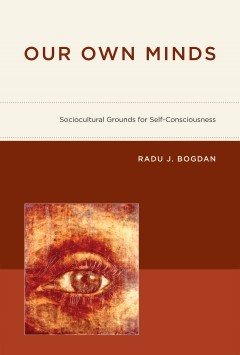
Our Own Minds: Sociocultural Grounds for Self-Consciousness
Here, Radu Bogdan takes a developmental perspective on consciousness and proposes that children's functional capacity for consciousness is assembled during development out of a variety of ontogenetic adaptations that respond mostly to sociocultural challenges specific to distinct stages of childhood.OCLC-licensed vendor bibliographic record.
- Edition
- -
- ISBN/ISSN
- 9780262289214
- Collation
- 1 online resource (xii, 210 pages).
- Series Title
- -
- Call Number
- -
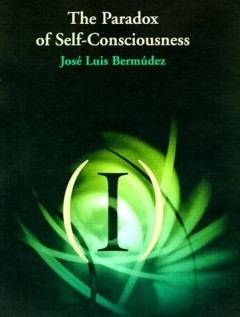
The paradox of self-consciousness
"A Bradford book."In this book, Jose Luis Bermudez addresses two fundamental problems in the philosophy and psychology of self-consciousness: (1) Can we provide a noncircular account of full-fledged self-conscious thought and language in terms of more fundamental capacities? (2) Can we explain how full-fledged self-conscious thought and language can arise in the normal course of human developme…
- Edition
- -
- ISBN/ISSN
- 0585190089
- Collation
- 1 online resource (xiv, 338 pages) :illustrations.
- Series Title
- -
- Call Number
- -
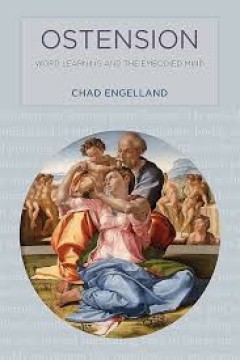
Ostension: Word Learning and the Embodied Mind
"Ostension is bodily movement that manifests our engagement with things, whether we wish it to or not. Gestures, glances, facial expressions: all betray our interest in something. Ostension enables our first word learning, providing infants with a prelinguistic way to grasp the meaning of words. Ostension is philosophically puzzling; it cuts across domains seemingly unbridgeable--public--privat…
- Edition
- -
- ISBN/ISSN
- 9780262320610
- Collation
- 1 online resource (xxix, 305 pages)
- Series Title
- -
- Call Number
- -
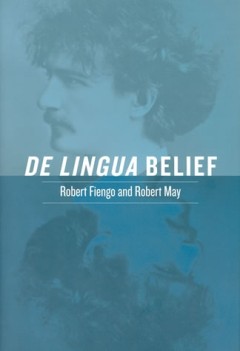
De Lingua Belief
"A Bradford book."An investigation into the beliefs speakers have about language-their de lingua beliefs-that examines the genesis of these beliefs and the central explanatory role they play in the use and understanding of language.OCLC-licensed vendor bibliographic record.
- Edition
- -
- ISBN/ISSN
- 9780262257770
- Collation
- 1 online resource (viii, 179 pages)
- Series Title
- -
- Call Number
- -
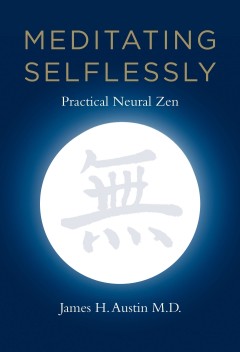
Meditating Selflessly: Practical Neural Zen
This is not the usual kind of self-help book. Indeed, its major premise heeds a Zen master's advice to be less self-centered. Yes, it is "one more book of words about Zen," as the author concedes, yet this book explains meditative practices from the perspective of a " neural Zen." The latest findings in brain research inform its suggestions. In Meditating Selflessly, James Austin -- Zen practit…
- Edition
- -
- ISBN/ISSN
- 9780262300155
- Collation
- 1 online resource (xxiv, 251 pages) :illustrations (some color)
- Series Title
- -
- Call Number
- -
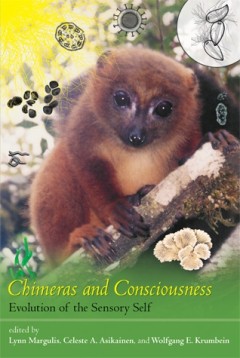
Chimeras and Consciousness: Evolution of the Sensory Self
This title begins the inquiry into the evolution of the collective sensitivities of life. Scientist-scholars from a range of fields - including biochemistry, cell biology, history of science, family therapy, genetics, microbial ecology, and primatology - trace the emergence and evolution of consciousness.
- Edition
- -
- ISBN/ISSN
- -
- Collation
- 1 online resource (xviii, 321 pages, 8 unnumbered pages of plates
- Series Title
- -
- Call Number
- -
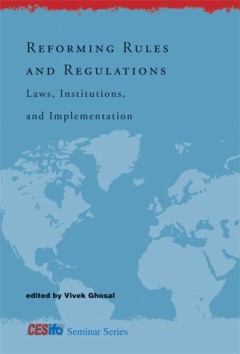
Reforming Rules and Regulations: Laws, Institutions, and Implementation
Contributors examine how regulatory & institutional environments affect the functioning of markets & propose reforms, arguing that quantitative methods should be used to guide policy & to reform rules & regulations. These essays offer methodologies for the assessment of policy alternatives.OCLC-licensed vendor bibliographic record.
- Edition
- -
- ISBN/ISSN
- 9780262289412
- Collation
- 1 online resource (x, 316 pages) :illustrations, maps.
- Series Title
- -
- Call Number
- -
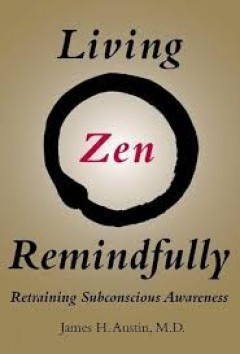
Living Zen Remindfully: Retraining Subconscious Awareness
"This is a book for readers who want to probe more deeply into mindfulness. It goes beyond the casual, once-in-awhile meditation in popular culture, grounding mindfulness in daily practice, Zen teachings, and recent research in neuroscience. In Living Zen Remindfully, James Austin, author of the groundbreaking Zen and the Brain, describes authentic Zen training--the commitment to a process of r…
- Edition
- -
- ISBN/ISSN
- 9780262336475
- Collation
- 1 online resource
- Series Title
- -
- Call Number
- -
 Computer Science, Information & General Works
Computer Science, Information & General Works  Philosophy & Psychology
Philosophy & Psychology  Religion
Religion  Social Sciences
Social Sciences  Language
Language  Pure Science
Pure Science  Applied Sciences
Applied Sciences  Art & Recreation
Art & Recreation  Literature
Literature  History & Geography
History & Geography